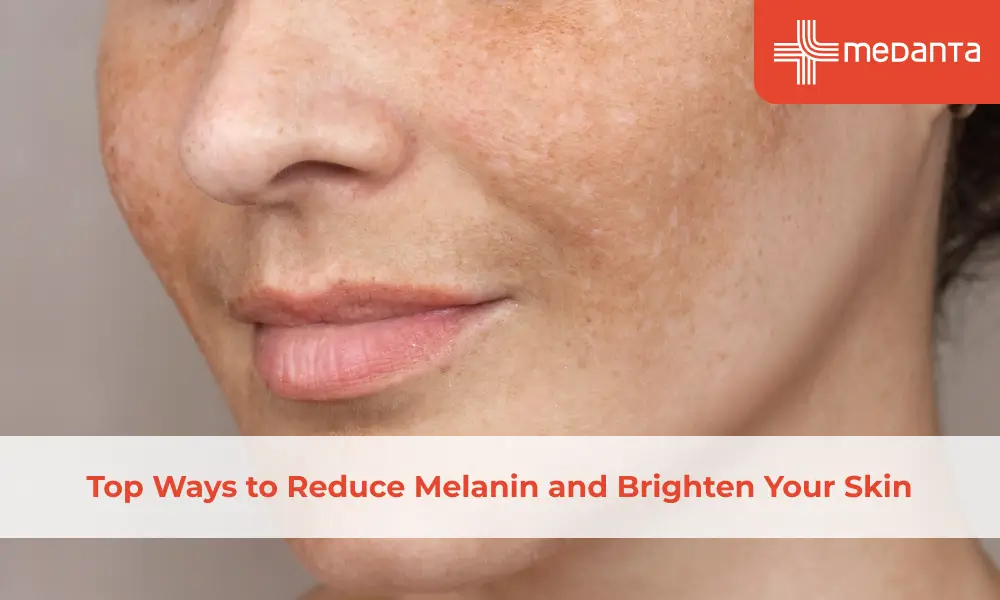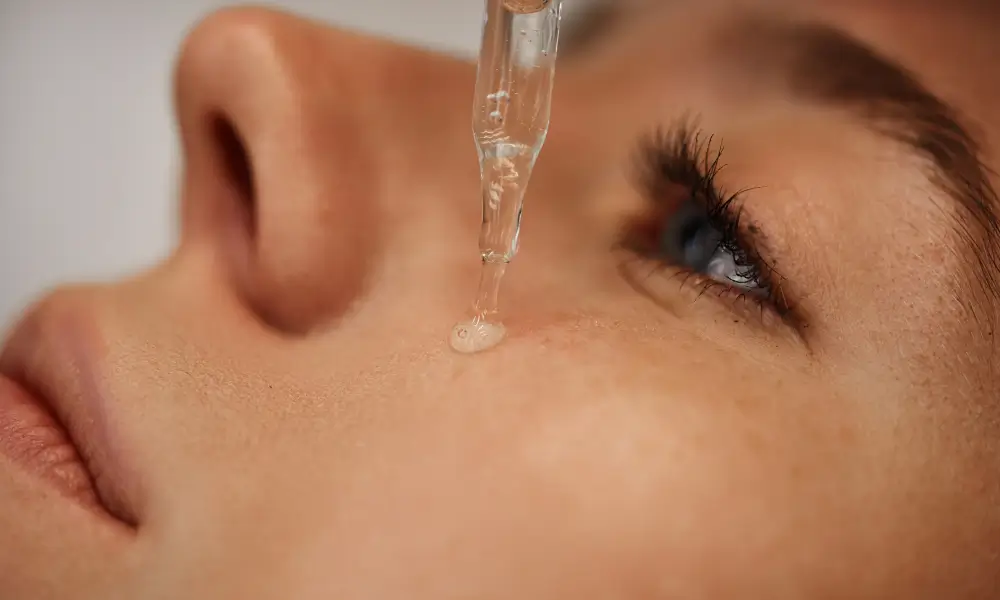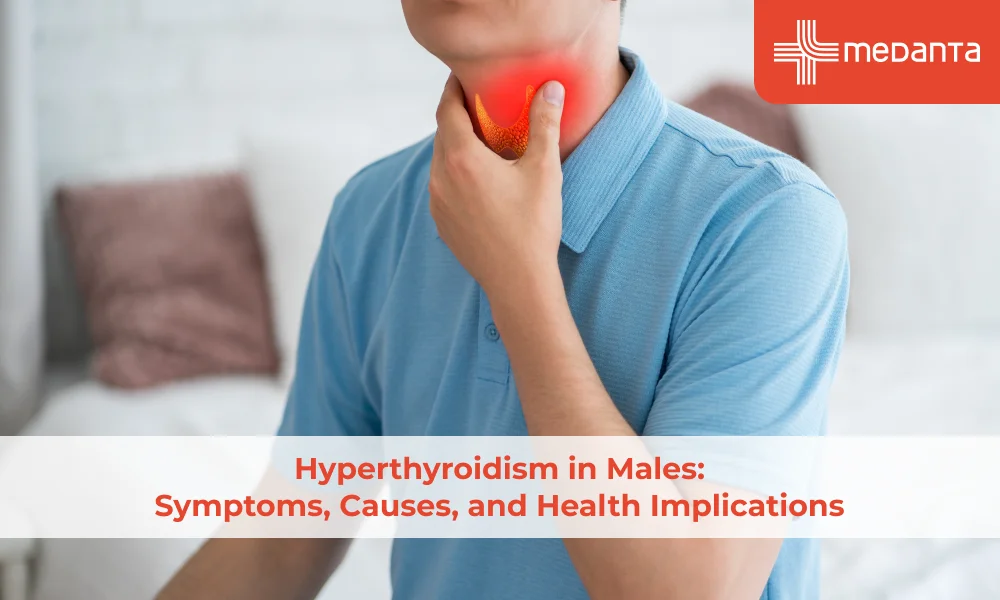Top Ways to Reduce Melanin and Brighten Your Skin

TABLE OF CONTENTS
Melanin gives your skin its colour and acts as a natural barrier against harmful UV rays. The first step to reducing melanin naturally is to know what makes your body produce it. Too much melanin leads to uneven skin tone, dark spots and hyperpigmentation that many people want to fix.
Your skin's melanin levels can be controlled in several ways. Some foods help decrease melanin production naturally. People looking for professional options can try skin lightening treatments such as laser therapy & intense pulsed light (IPL). These treatments remove existing melanin deposits effectively.
This article covers everything from daily habits to clinical treatments that can brighten your complexion. You'll learn about many ways to manage melanin levels safely - from changing your diet to trying advanced procedures. Each method has its own benefits that depend on your skin's needs, goals, and budget.
How to Stop Melanin Production Safely — What Science Says
Science provides multiple ways to control melanin production safely. You have options ranging from natural approaches to medical procedures that make your skin glow without causing damage.
Lifestyle Habits That Help Control Melanin Production
The most important way to lower excess melanin production is to apply sunscreen with a broad-spectrum SPF of 30 or higher every day, even when it's cloudy. Sunscreens with iron oxide that block both UV and visible light proved more effective at reducing skin darkening than standard UV-only sunscreens. Alpha-hydroxy acids help reveal brighter skin through regular exfoliation.

Foods That Decrease Melanin Levels Naturally
Several foods can inhibit melanin production naturally.
Vitamin C-rich fruits block tyrosinase, the enzyme that creates melanin.
Green tea's epigallocatechin gallate (EGCG) substantially reduces melanin buildup.
Foods rich in glutathione—like avocados, broccoli and spinach—eliminate free radicals that cause excessive pigmentation.
Turmeric's active compound curcumin suppresses melanin synthesis according to studies.
Medical Treatments to Reduce Melanin (Peels, Lasers & Creams)
Dermatologists call hydroquinone (2-4%) the gold standard to treat hyperpigmentation. The 4% concentration shows the strongest results for melasma reduction.
Chemical peels with glycolic acid (30-70%) improved conditions in about half the treated patients.
Q-switched Nd:YAG laser treatments break down melanin deposits effectively, and the body flushes them naturally.
Tranexamic acid and cysteamine are newer options that match hydroquinone's results with fewer side effects.
Precautions and Side Effects of Reducing Melanin
Skin lightening products can be dangerous and you should know about their risks. Many people want brighter skin, but safety comes first when you're thinking about these treatments.
Side Effect/Risk | Description | Warning Signs |
Mercury Poisoning | Found in banned but still available products | Numbness, high blood pressure, fatigue, sensitivity to light, tremors, memory loss, irritability, kidney damage |
Dermatitis | Inflammatory reaction to chemicals | Redness, blistering, skin ulcers, rash, dry scaly skin, swelling, itching, burning sensation |
Exogenous Ochronosis | Blue-black pigmentation from long-term hydroquinone use | Dark patches, especially on the face |
Steroid Acne | From corticosteroid-containing creams | Whiteheads, blackheads, small red pimples, large pustules, acne scars |
Nephrotic Syndrome | Kidney disorder linked to mercury exposure | Swelling around eyes/ankles, foamy urine, appetite loss, fatigue |
Increased Sun Damage | Less melanin means less UV protection | Wrinkles, uneven texture, discolouration |
Higher Skin Cancer Risk | Due to reduced natural protection | Increased likelihood of developing skin malignancies |
Chemical Toxicity | Arbutin can release hydroquinone | Bone marrow toxicity, potential mutagenic effects |
Cytotoxic Effects | From ingredients like kojic acid | Cell damage, reduced efficacy due to product instability |
Important Note: The FDA doesn't approve over-the-counter skin lightening products as safe or effective. Many countries have banned certain skin whitening ingredients. Yet unregulated products remain on the market, and some claim to be "natural."
Conclusion
Keeping your melanin levels in check is like walking a tightrope between getting the skin tone you want and staying healthy. Sunscreen is the most significant step you can take to stop your skin from producing too much melanin.
Looking good shouldn't put your health at risk. Take time to research any melanin-reducing method before you try it. Many countries don't allow the use of certain ingredients found in skin lightening products. You should take advice from a dermatologist before starting treatment.
Your skin's natural protection comes from melanin. While brightening treatments help with dark spots or uneven tone, you need some of this protective pigment to keep your skin healthy. The best results come from mixing gentle, proven methods with realistic goals and expert guidance.
FAQs
How can I reduce melanin in my skin permanently?
You can't completely stop melanin production permanently since melanin protects against UV radiation. Several methods can reduce and manage melanin levels by a lot:
Q-switched YAG laser treatments are the quickest way to reduce melanin long-term
Chemical peels with glycolic acid or trichloroacetic acid help remove pigmented skin cells
Results from professional treatments need maintenance and consistent sun protection
What foods or drinks help reduce melanin naturally?
These foods and drinks can help decrease melanin production:
Green tea has EGCG that controls melanin buildup
Tomatoes, milk, eggs, cheese, carrots, yoghurt, chia seeds, oatmeal, ginger, watermelon, kiwi, and papaya
Foods rich in Vitamin C block melanin production by reducing tyrosinase
Tomatoes and walnuts contain glutathione that slows melanin formation
Is it safe to stop melanin production completely?
No, you can't and shouldn't try to stop melanin production completely. Genetics influence melanin, which is a vital shield against UV damage. Trying to eliminate all melanin would:
Makes you more likely to get sun damage and skin cancer
Causes more wrinkles, uneven texture, and discolouration
Remove your skin's natural UV protection
How long does it take to decrease melanin in skin?
Your results will vary based on treatment type and personal factors:
Laser treatments need multiple sessions spread over weeks
Chemical peels show improvement gradually over several sessions
Natural remedies and diet changes take longer and need consistent use
Topical treatments must be used regularly to maintain results
Which medical treatments work best to reduce melanin?
Most effective clinical options include:
Hydroquinone (4%) remains the gold standard to treat hyperpigmentation
Q-switched lasers break down melanin deposits effectively
Chemical peels with specific acids remove pigmented layers
Newer treatments like tranexamic acid and cysteamine cream have fewer side effects
Can home remedies really reduce melanin levels?
Yes, though results are slower and more subtle:
Turmeric has curcumin that reduces melanin production
Aloe vera contains aloesin that blocks tyrosinase
Diluted lemon juice works through its vitamin C content
You will need patience and consistency to see results
What is the best drink to reduce melanin naturally?
These drinks may help reduce melanin production:
Green tea leads the pack with its EGCG content
Lemon water helps through vitamin C
Tomato juice contains lycopene that lightens skin
Carrot juice promotes even skin tone with beta-carotene






